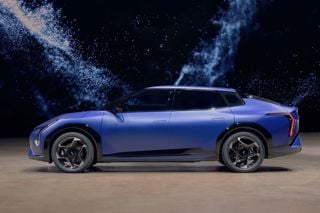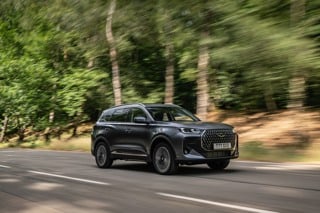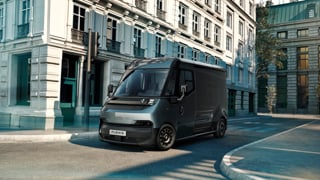Plug-in petrol hybrids are going to take some time to establish themselves as the third fuel choice in the used sector, despite their success in the new car market, says Glass’s.
It says that the popularity of petrol hybrid electric vehicles (PHEVs) while new is being driven almost entirely by company car taxation - and is unlikely to be matched by used car buyers.
Rupert Pontin, head of valuations, said: "Plug-in hybrids are doing quite well in the new sector as they are not in any way range-restricted like pure electric vehicles and can save the driver thousands of pounds in benefit in kind taxation.
"Generally, a PHEV is congestion charge and VED exempt, and offers a better enhanced capital allowance, which would allow a company to offset 100% of its value against income for the first year, as opposed to 8% for the equivalent diesel."
However, Pontin says, these vehicles usually do not make a compelling choice for used car buyers unless they are very keen to avoid the congestion charge and to enjoy vehicle excise duty exemption.
He said: "For used buyers, the question will be whether to go for a PHEV or the diesel equivalent. A big issue, we believe, will be real world fuel economy. The pure electric range of the PHEV is probably 20-30 miles and then the vehicle is driven by a petrol engine when MPG drops massively. These are quite big, heavy cars.
"If you generally cover short distances with the occasional longer journey or regularly take the vehicle into congestion or low emission zones, then a PHEV can make sense. However, if you regularly cover considerably more than the electric range, it doesn't. It is only really logical in new car taxation terms."
Pontin said that there was also an underlying issue that the majority of used retailers and car buyers did not have much awareness of plug-in hybrids or how they might benefit certain kinds of motorists.
"There are people buying in the market who are very aware of the new technology and are keen to adopt it, perhaps for ethical as much as for practical reasons. However, most buyers are going to view PHEVs with a little bit of suspicion.
"They may be wary of all kinds of things, from the complexity of its drivetrain and any potential costs from breakdowns through to its potential resale value. Many will kick the tyres of a PHEV and then play safe and buy the diesel.
"While this persists, it will be difficult to come up with really competitive PCP rates for this kind of vehicle that will place them on parity with their traditionally-powered counterparts. Certainly, predictions that PHEVs will become a popular third fuel choice after petrol and diesel seem premature at best."
He added that at a point in time when diesel and petrol prices were falling quite quickly and quite substantially, it becomes even more difficult to make a case for plug-ins.
"We are already seeing some evidence that low fuel prices are slightly affecting sales of alternative fuel vehicles at both new and used level,” he said. “While oil is cheap, it does undeniably dent the appeal of hybrids."
Mitsubishi registered more than 10,000 Outlander PHEVs in its first 12 months on sale following its launch in May 2014, and around 12,000 were registered during 2015.
Lance Bradley, managing director of Mitsubishi in the UK, told Fleet News: "We began a PCP scheme for used PHEVs last year, because the needs of used car buyers are different from those in the new car market.
"We needed to help create that demand among used car buyers, as well as protect residual values of the PHEV.
“We would have had problems with all these used cars going out to market where the benefits for used car buyers of choosing PHEV aren't the same as for those choosing them as company cars.
"Take-up for our initial allocations has been very positive, and we expect this to continue."























Nigel - 08/03/2016 10:56
I was using a Hospital car park yesterday and was impressed to see three PHEV parking bays on site. I was also very disappointed to see two of them occupied by two clearly non PHEV vehicles...! A Jaguar and a KA.